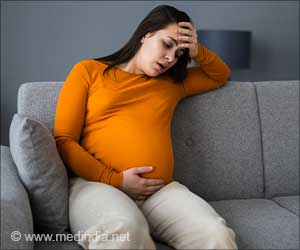A new study has warned that the impact of emotional well-being on adolescents' physical health shouldn't be underestimated.

Adolescents' positive emotions and moods, as well as their satisfaction with life, could be more important than their anxiety or depression levels for predicting their physical health, they argue.
Looking at teenagers' so-called 'subjective well-being' could help identify those likely to develop health problems in the future and target them with appropriate prevention strategies.
To date, the majority of the research looking at the relationship between mental health and physical health in young people has focused primarily on how symptoms of poor mental health, or psychopathology, such as anxiety and depression, relate to physical functioning.
This approach fails to take into account the potential influence of positive indicators of mental health, such as positive emotions and mood states and life satisfaction, known as subjective well-being.
Shaffer-Hudkins' study is the first to look at both positive and negative indicators of mental health in relation to physical health in a sample of 401 students in grades 6-8 from a suburban southeastern middle school in the United States.
Advertisement
They were also asked about feeling withdrawn, anxious and depressed and about delinquent and aggressive behavior (all indicators of psychopathology). Finally, they told researchers about their physical health.
Advertisement
The work has been published in Springer's journal Applied Research in Quality of Life.
Source-ANI











